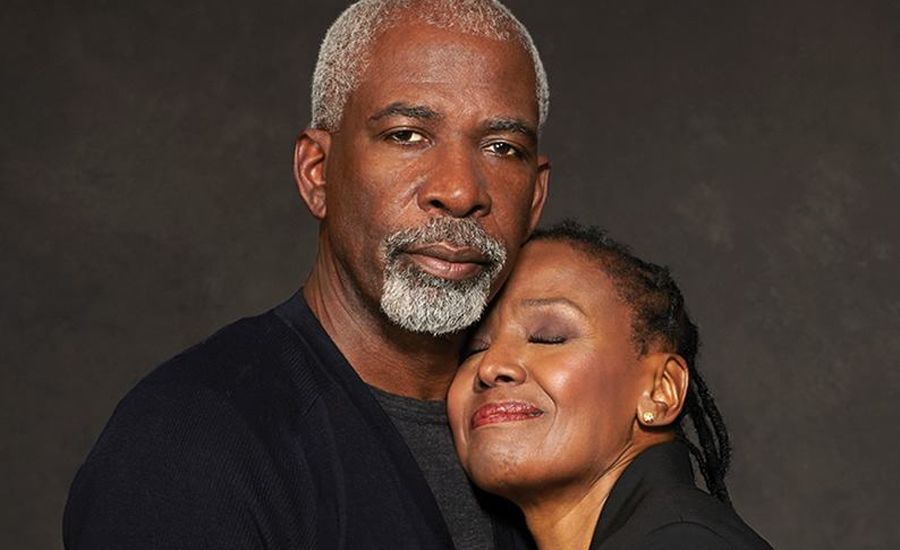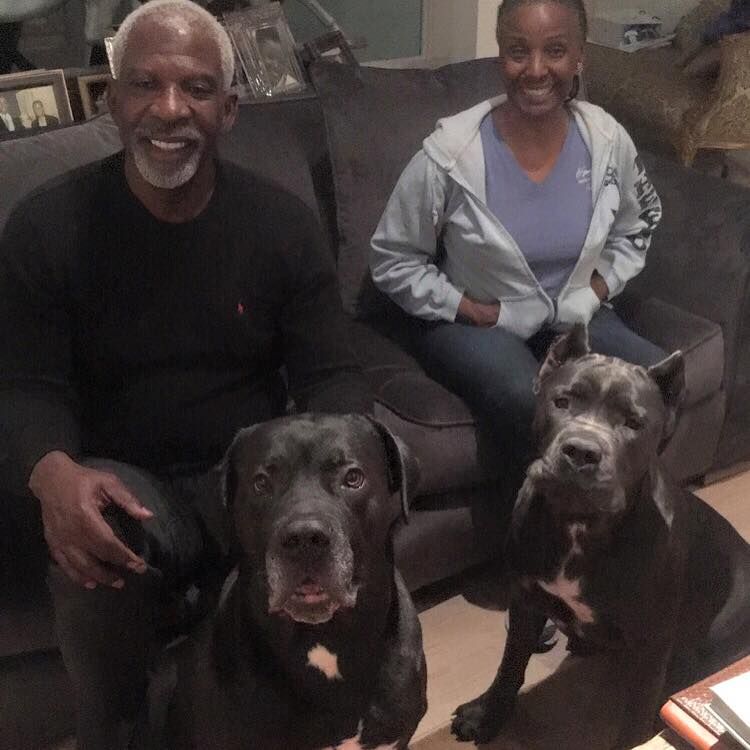B. Smith passed away, age 70, on February 22, 2020. We pray God’s comfort on her family, friends and fans and her husband, Dan Gasby.
When B. Smith married her business partner Dan Gasby in 1992, the ground-breaking fashion model had built a lifestyle empire, with cookbooks, a home goods line, the B. Smith restaurant on New York City’s coveted Restaurant Row section of the Theater District and more.
Now, Gasby tells Guideposts.org, “She’s not allowed to cook by herself anymore. She’s not allowed to drive.”
In 2013, at the age of 64, Smith was diagnosed with early onset Alzheimer’s disease and Gasby has been her primary caregiver ever since.
READ MORE: 5 TIPS TO AVOID CAREGIVER BURNOUT
Gasby noticed a change in Smith about year prior to her diagnosis. For decades, they’d had an easy-going, fun marriage and partnership, but suddenly, things began to fizzle.
“She would get angry at me for no apparent reason, when before she was the kindest person I’d ever known. She would be late or not show up to appointments that she would’ve never missed, usually,” he says.
“Once, she put my wallet on the hood of her car and she drove off and the wallet fell off and we lost it, along with the U.S. Medal of Honor coin from a friend who’d been injured in combat in Afghanistan that I’d kept inside the wallet.”
The forgetfulness seemed like thoughtfulness to a frustrated Gasby, until one embarrassing incident on live television made it clear to Smith and Gasby that something really serious was wrong with her.
Smith had a guest spot sharing Labor Day recipes on the Today show with co-hosts Peter Alexander and Savannah Guthrie, something the lifestyle guru had done a thousand times before. But when one of the hosts asked her a question, Smith froze. “Ten seconds is an eternity on live television,” Gasby writes in their new book about their Alzheimer’s journey, Before I Forget. “B. stood there for longer than that.”
Though Alexander and Guthrie covered for Smith until the segment was over, Smith and Gasby’s new way of life was just beginning.
“I cry a lot,” Smith writes in Before I Forget. “I don’t know why; I guess sometimes I just feel sad. I feel like I’m misbehaving. I don’t want to do that. I want to be nice to my family, but sometimes I can’t be.”
When Smith gets upset with her husband, “You’re called everything but a child of God,” Gasby says. “It’s been gut-wrenching. But you have to divorce yourself from it.”
To do that seemingly impossible task, Gasby seeks help from others. “You need to go to therapy and reach out to people,” he tells caregivers. “Tell them you can’t do it alone.”
Gasby and Smith are also getting help from their incredible dogs, Bishop and Sansa. Both dogs sleep in their owners’ room at night, keeping Smith from sleepwalking or leaving the room while Gasby is asleep.
“If she gets up [at night] and gets ready to walk somewhere or goes past a certain point, they’ll start to rustle [and wake me up],” he says. “They’ll growl and they don’t normally growl, and she’ll snap out of it. Bishop will put his ears back like he knows he did something wrong, but he had to do it. Then he’ll wag his tail and it calms her down. These dogs have been nothing but a God-send.”
In this new stage of life, Gasby describes himself as “miserably happy.” Though he is angry and sad that the wife he married is never coming back, as Alzheimer’s is a progressive disease with no known cure, Gasby finds joy in knowing that his wife is still alive and that they are finding a new normal together.
They stick to a Mediterranean diet and get regular exercise to stay as healthy as they can, and she also takes medication.
Spiritually, Gasby has learned to do what therapists call “joining the journey,” for Alzheimer’s caregivers. For Gasby, that means living as much in the present as possible, since that is the most that Smith can do. “You don’t own tomorrow. You only own now. So live in the now,” he says. “Living in the now is the highest form of spiritual clarity one can have.”
In the present, however, is also the anger and sadness that caregivers can experience. Gasby says caregivers need to acknowledge and accept these emotions as valid. “Know that you’re going to get angry,” he advises. “Because you’re looking at the same person and the disease is so seductively insidious that you’ll have moments of clarity that will remind you of where you were [compared to now] and you’ll get upset and you have to forgive yourself for being upset.”
Gasby says anger can be a positive emotion. “Anger is a good thing when it’s directed at the right thing. I can’t get angry at her, but I can be angry at the situation and be sympathetic to others [going through the same thing]. It mobilizes you, it energizes you to try to do what’s better for others.”
He and Smith have been sharing their journey publicly to raise awareness for the lack of Alzheimer’s research funding. Noted Alzheimer’s researcher Dr. Rudolph E. Tanzi writes in the foreword to Before I Forget that Alzheimer’s researchers get less than $250 million, compared to the $6-12 billion the federal government spends on cancer, heart disease and AIDS.
READ MORE: ENCOURAGING BIBLE VERSES FOR CAREGIVERS
Gasby calls Alzheimer’s a “21st century civil rights issue,” saying that the cost of caregiving and health care for a loved one with the disease can bankrupt families. “This affects all of us,” Gasby says.
That’s why Smith and Gasby wrote their book and continue to share not just their struggles, but helpful tips for caregivers to the many Americans dealing with Alzheimer’s.
“Going through this is bigger than just her or me,” Gasby says. “It’s bigger than just being a caregiver. We’re here to tell the truth about all of it, not to hide it.”
Before I Forget: Love, Hope, Help, and Acceptance in Our Fight Against Alzheimer’s by B. Smith & Dan Gasby is available in stores now.






